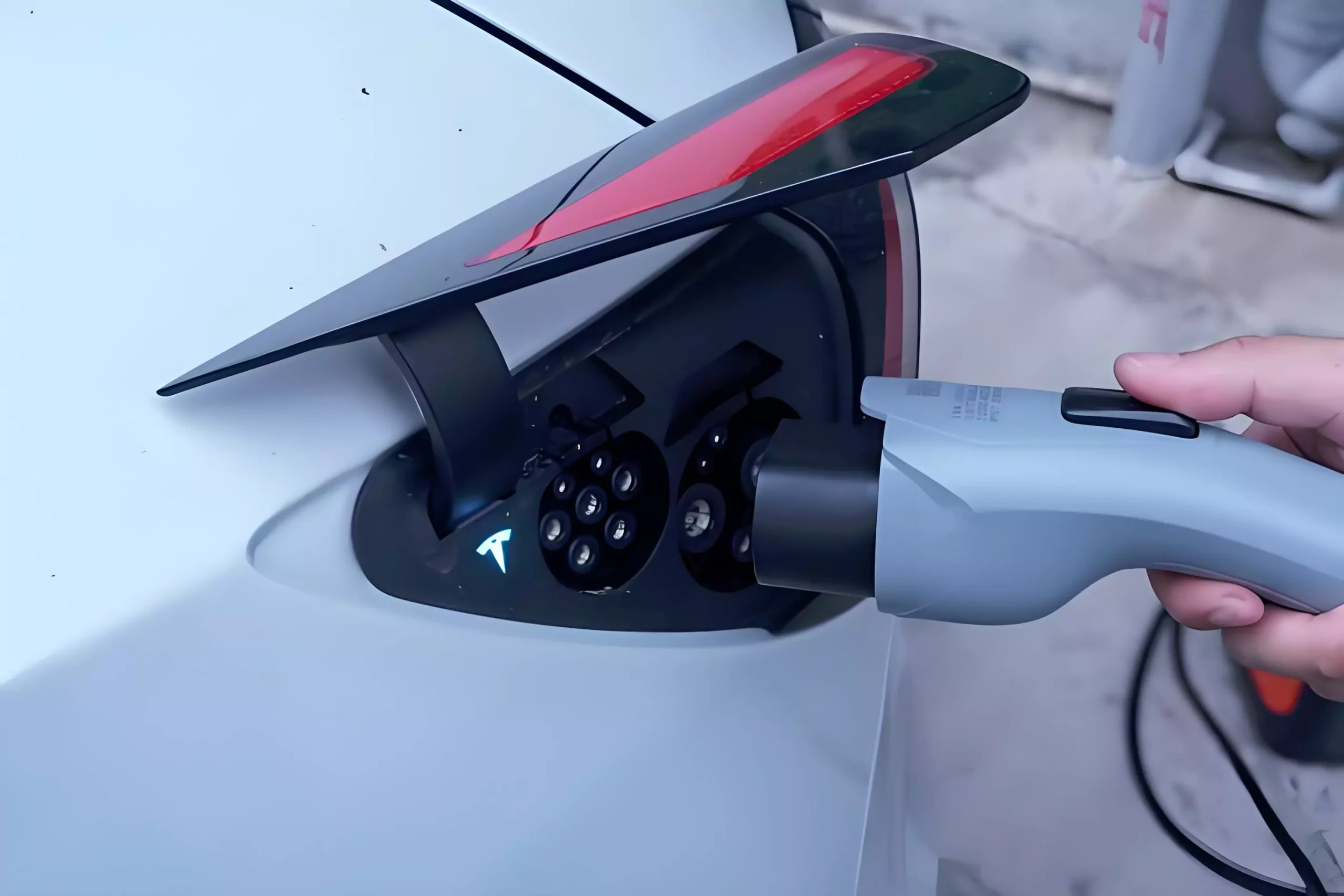EV prices are dropping approximately 18% every year. This marks a new era of EV adoption. As the number of electric vehicles grows, so does the need for charging infrastructure. This blog post aims to shed light on one of the crucial components of this infrastructure: EV home charging stations, also known as EV charging piles.
We’ll delve into 8 frequently asked questions about EV home charging stations, providing you with valuable insights into their installation, charging times, costs, compatibility, and more.
1. What is an EV Home Charging Station?
An EV home charging station is a piece of equipment designed for charging electric vehicles. Home EV charging stations serve as standalone units that convert electricity from the grid into a form suitable for charging EV batteries. They can be installed in various locations, including residential areas, commercial buildings, and public parking lots.
Charging stations offer a range of power outputs, from 3 kW to 22 kW, catering to both regular and rapid charging needs. Regular stations utilize standard AC voltage (220V or 380V), while rapid charging stations often employ higher DC voltages. Charging stations are equipped with various connector types, ensuring compatibility with different vehicles.

2. What are the Differences Between Charging Stations and Piles?
Although synonymous terms, there are some key differences between both terms. The following table highlights the key differences between charging piles and charging stations:
| Feature | Charging Piles (EV Home Charging Stations) | Charging Stations |
| Usage | Suitable for home and small-scale commercial use. | Designed for high-demand environments. |
| Power Output | Typically, from 3 kW to 22 kW. | Generally, from 50 kW to 350 kW. |
| Charging Points | Usually provides one charging point per unit. | Multiple charging points available for several vehicles at once. |
| Charging Speed | Slower charging speeds compared to DC fast charging stations. | It varies, but DC fast charging stations are very fast. |
| Installation Costs | Lower installation costs | Higher installation costs |
| Technology Integration | It may include smart features. | Usually, it has smart grid features and monitoring systems. |
| Payment Interface | Usually, it has no or basic payment interface as it is used in private settings. | It has payment systems as it is intended mainly for public use. |
| Accessibility | It can be publicly accessible or privately owned. | Primarily located in high-traffic areas like shopping centers and transportation hubs for public access. |
3. What are the Different Types of Electric Vehicle Home Charging Stations?
Home charging stations can be divided into various types based on different parameters like installation method, location, interface, and charging speeds:
- Based on Installation
- Vertical charging stations stand independently and are suitable for outdoor or residential parking spaces, as they do not require wall support.
- Wall-mounted charging stations need to be fixed to a wall and are ideal for indoor or underground parking environments.
- Based on Accessibility
- Public charging stations are installed by public service organizations for general use and are typically found in public parking lots.
- Commercial charging stations are designed for specific enterprises serving customers and staff and are often located in places like shopping mall parking lots.
- Private stations are installed in personal areas and are not accessible to the public.
- Based on Location
- Indoor charging stations are suitable for sheltered environments.
- Outdoor charging stations can withstand harsh weather conditions.
- Based on Capacity
- Single charging stations can charge one vehicle at a time.
- Multi-charging stations can charge multiple vehicles simultaneously.
- Based on the Current Type
- AC charging stations have lower current outputs and take longer to charge.
- DC charging stations provide higher current outputs for fast charging.

4. How Long Does it Take to Charge an EV on a Home Charging Stations?
The charging time for an electric vehicle (EV) depends on several factors, including:
- Battery size: Larger batteries take longer to charge.
- Power output: Higher power output results in faster charging.
- Current charging level: A depleted battery takes longer to charge.
Here’s a breakdown of charging times for different types of charging stations:
Level 1 Charging Stations: They use 110V-120V power sources. Due to its low power output, a full charge can take anywhere from 10 to 20 hours. This option is often used in residential settings where charging can occur while the vehicle is parked overnight.
Level 2 Charging Stations: They use 220V/240V power sources. It offers faster charging times compared to Level 1, typically taking 2 to 10 hours for a full charge. Level 2 stations are found in commercial settings, workplaces, and public parking lots.
Level 3 Charging Stations: Level 3 stations provide direct current (DC) power, allowing for much quicker charging times. It can charge an EV battery to 80% capacity in as little as 20-45 minutes. Primarily located along highways, they are ideal for long-distance travel.

5. Should You Charge Your EV Only Up to 80% on an EV Charging Station?
Yes, you should charge your electric vehicle (EV) only up to 80% on a charging station. It is also known as the 80% rule for EV charging. This practice can help maintain the health and longevity of your EV’s battery. Charging to full capacity can accelerate chemical reactions that degrade the battery over time, while limiting the charge to 80% reduces voltage stress.
Additionally, the charging rate slows after 80%. EVs take nearly as long to charge from 80% to 100% as they do from 20% to 80%. By stopping at 80%, you can reduce charging times considerably. Moreover, higher states of charge can lead to increased thermal stress. Capping the charge at 80% reduces the chances of overheating and associated damage.
6. How Much Does it Cost to Install a Home EV Charging Station?
The cost of installing a home EV charging station can vary depending on several factors. For instance, the complexity of the installation site may necessitate additional electrical work, such as upgrading existing wiring or installing new circuits. Labor costs can also vary based on regional rates and whether permits are required. Furthermore, businesses may need to consider ongoing expenses associated with maintenance and network connectivity if they opt for smart charging stations.
Generally, here are the approximate costs for the 3 major types:
- Level 1 charging station: Relatively inexpensive, typically ranging from $500 to $1,000.
- Level 2 charging station: More expensive, with costs ranging from $2,000 to $5,000.
- DC fast charging station: The most expensive option, with costs typically ranging from $10,000 to $50,000 or more.

7. How Much Does it Cost to Charge an EV on a Charging Station?
The cost of charging an EV at a charging station mainly depends upon the cost of electricity. Plus, it also depends upon factors like charging efficiency and battery size. You can use the following formula to calculate the charging costs:
Charging cost = Battery size in kWh x Charger efficiency x per kWh cost
On average, charging an EV costs around $0.05 per mile. Level 2 stations typically charge between $0.10 and $0.40 per kWh. Similarly, a DC fast charging station (Level 3) can charge from $0.20 to $0.60 per kWh or more, depending on the provider and location. You can also benefit from exclusive charging networks such as Tesla Superchargers to save money.
8. Can You Install an EV Charging Station Outdoors?
Yes, you can install an EV charging station outdoors, but there are specific requirements to ensure safety and functionality. One of the key considerations is the protection level. Outdoor charging station must have a minimum protection rating of IP54, which safeguards them from wind, rain, and other harsh environmental conditions. In addition to protection, outdoor chargers should be equipped with insulation to prevent electrical hazards and ensure safety.
9. Excellent Suppliers of EV Charging Stations in China
BESEN
BESEN is a premier manufacturer of electric vehicle supply equipment (EVSE) with over 14 years of experience and a global presence in 73 countries. Known for its innovation, BESEN provides safe, efficient, and reliable EV charging solutions for both families and businesses. Their product line includes portable chargers and charging stations, and the company offers ODM and OEM services, catering to the specific needs of its partners and customers.

Sino Energy | Global Leader in Charging Solutions | Partnering With Top Global Brands
Sino Energy was established in 2006 and is a wholly-owned subsidiary of Zhuhai Pilot Technology Co., Ltd(stock code: 831175).
Sino Energy is dedicated to providing efficient and reliable EV charging solutions to markets across over 90 countries. With 18 years of project experience, they remain at the forefront of innovation in the electric vehicle charging industry,
offering one-stop solutions to meet our customers’ needs.

Final Word: 8 FAQs About EV Home Charging Stations
So, there you have it, everything you need to know about EV home charging stations. By understanding the different types of charging stations, their charging times, installation costs, and compatibility, you can make informed decisions about your EV charging needs.
Looking for an electric car from China? You can import one from China at a highly affordable price. GuangcaiAuto brings you a variety of reliable and efficient electric cars.
We offer electric cars from 60+ worldwide auto brands. With our efficient shipping and streamlined import process, bringing your dream EV to your doorstep is easier than ever.
Get in touch with our sales team for more information, and don’t forget to explore our blog for the latest news and offers from the Chinese car market.


